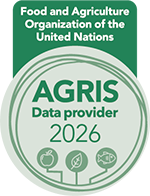Organic beef farming in Spain: typology according to livestock management and economic variables.
Resumen
The aim of this study was to characterize organic beef production systems throughout the process of clustering under a multivariable analysis. The survey was conducted on 69 farms to establish the main technical, socio”“economical and productive aspects of the organic beef farms. Results show that only 40.6% of the surveyed farms commercialize calves as organic certified in the organic market. A principal component analysis showed four factors explaining 74.7% of the original variance. The systems differ from their orientation market type, intensifi- cation level, dimensionality and economic performance. The subsequent cluster analysis leads to characterize four different organic beef farm systems. Groups mainly differ on the previous conditions before the conversion and the product speciali- zation. Group I and II perform a close production system, where weaning and fattening occur at the same farm. Profit- able results for Group I and II are highly dependent of technical competencies such as a large scale and higher volume of organic sales, respectively. Group III and IV are low intensified systems of weaned calves and show notably a lack of development as organic farm systems. They need strong changes in the farm structure and market orientation to continue as or- ganic producers.



















